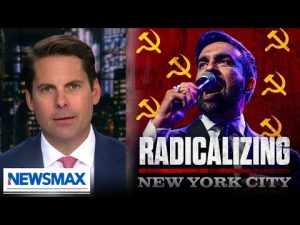In the world of American politics, transformations are as common as hot dogs at a July 4th barbecue. The Republican Party, once the home of hawkish foreign policy and aggressive military interventions, has taken a turn toward a more isolationist approach. This change can be attributed to the rise of the America First movement, led by none other than Donald Trump and his dedicated squad. While this group may not be perfect, they have certainly moved away from the strategies associated with the likes of Dick Cheney and his neoconservative allies, who are more commonly remembered for their role in deepening military conflicts.
Across the aisle, however, the Democratic Party seems to be experiencing a different type of transformation, one that many are calling hostile and radical. This drain on traditional values can be traced back to the Obama administration, but the currents have only grown stronger under Joe Biden’s leadership. Now, with recent elections leading to the rise of more progressive candidates, including one described as a “radical Muslim socialist,” it’s clear that the Democrat Party is in the midst of an identity crisis. This leads to a confusing landscape for voters who once thought they understood what their political party stood for.
In contrast to what Republicans have gleaned in their evolution, the Democrats appear to be diving headfirst into policies that some would say have strayed too far from their original intent. The selection of leaders whose platforms may not resonate with the mainstream populace raises eyebrows and questions. It’s a stark reminder of how quickly political parties can morph and evolve—or devolve, depending on your perspective. The reaction to these changes is palpable, with many Republicans feeling a sense of vindication that they rejected a similar trajectory, as epitomized by Dick Cheney’s defeat.
The fiery fervor surrounding crime and safety in urban centers like New York City is yet another element of this political theater. The narrative around public safety is one that can’t be ignored, especially in a city scarred by tragedy 25 years ago. With memories of the September 11 attacks still fresh in the minds of many, voters have shown concern about policies that seem to defund police forces rather than support them. Mixed messages and radical shifts have led to discussions about whether citizens can truly feel safe in their own neighborhoods.
As the Republican Party continues to project an image of peace and national security, a remarkable reversal is taking place. Where the neoconservatives once thrived, now sits a party that champions restrained military action and a focus on domestic improvement. It appears that the full circle of political pendulum has swung, putting the GOP in a position to redefine itself not just as a party of hawks, but also as a party that values peace. The landscape of American politics shifts daily, but one thing remains clear: the conversation is far from over, and the stakes have never been higher.







